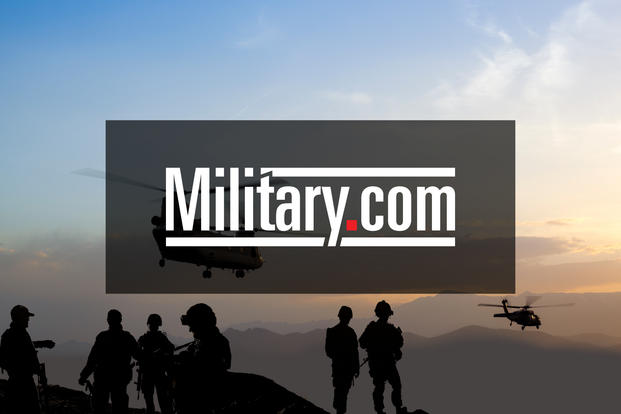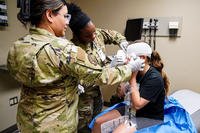The U.S. Air Force has sharply increased refueling missions for French attack aircraft in recent weeks as French and West African ground troops press to solidify gains against Al Qaida-backed Islamist rebels in Mali.
Through this week, U.S. tanker planes flying lengthy missions out of Spain had delivered at total of 7.8 million pounds of jet fuel to French Mirage and Rafale fighters supporting 4,000 French troops in the vast desert state, said Lt. Col. Rob Firman, a Defense Department spokesman.
The amount of fuel delivered has more than doubled since the week of March 18, when the Defense Department reported that a total of 3.7 million pounds of fuel had been supplied to French fighters.
From Jan. 11, when the French intervention began, through mid-March, the U.S. tankers had flown a total of 83 refueling sorties, Defense Department officials said. The officials could not immediately provide an updated figure on the total number of refueling sorties to date or the costs. France has agreed to reimburse the U.S. for the costs of the fuel, but not for the flights themselves, the officials said.
"We are entering a new phase in Mali," said Arnaud Guillois a spokesman for the French Embassy in Washington. French forces would now be more focused on "stabilization" than offensive action, Guillois said. About 4,500 French troops were in Mali at the height of the intervention and the plan was to reduce that number to 2,000 in July and to 1,000 by the end of this year, Guillois said.
France launched Operation Serval on Jan. 11 at the invitation of interim Malian President Dioncounda Traoré , who was installed by a military coup in March 2012. Mali’s ragtag forces had lost wide swaths in the north at first to Tuareg tribes and then to Islamists backed by AQIM.
French forces backed by 2,000 troops from Chad, considered the best equipped and trained in the region for desert warfare, quickly swept the rebels from northern towns, including fabled Timbuktu. The rebels have since hit back with ambushes and suicide attacks, prompting Chad to announce a pullout of its forces.
"Chad's army has no ability to face the kind of guerrilla fighting that is emerging in northern Mali," Chadian President Idriss Deby said earlier this month.
The setback from the pullout of Chadian forces was offset Thursday by the United Nations Security Council’s approval of a resolution authorizing the dispatch of 12,600 peacekeepers to Mali. The first contingents of the "blue helmets" were expected to begin arriving in July to coincide with the elections.
The UN force in Mali would be the world body's third largest, after those in the Democratic Republic of Congo and the Darfur region in Sudan, and cost up to $800 million annually, UN officials said.
Combating the rebels would still be left to the French and the Malian forces. Mali's Foreign Minister Tieman Hubert Coulibaly told the Security Council that the peacekeepers would concentrate on stabilizing urban centers and focus on "the protection of civilians, the promotion and protection of human rights, as well as humanitarian assistance."
In February, President Obama authorized $50 million in "immediate military assistance to Chad and France in their efforts to secure Mali from terrorists and violent extremists." The authorization is coming up for renewal next month. The State Department has also committed $6.6 million to support free elections in Mali tentatively scheduled for July.
The money was in addition to the $550 million the U.S. Africa Command has spent over the past four years on training and equipping West African security forces in stabilizing the shaky regimes of the region and in combating terrorism fueled by the flourishing drug trade. The allies fear that allowing the Islamists to gain a safe haven in West Africa could lead to terror attacks on the West.
In another move to aid the French, AFRICOM and the CIA have set up a base in neighboring Niger to fly Predator and Reaper drone flights over the trackless northern reaches of Mali where the rebels affiliated with Al Qaeda in the Islamic Maghreb hold sway.
The White House has stressed that the drone missions were unarmed and were being used to convey intelligence and reconnaissance information to the French.
Last week, the French parliament extended the mandate for French troops in Mali, which had been due to run out in May.
French Foreign Minister Laurent Fabius, who had anticipated the UN vote to approve peacekeepers, told parliament at the time: "Let's be blunt. We don't want them (the rebels) coming back, so we need to take precautions," Fabius said. "A UN peacekeeping force doesn't do that so the French will be there to do that job if necessary."





























